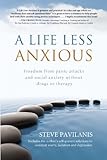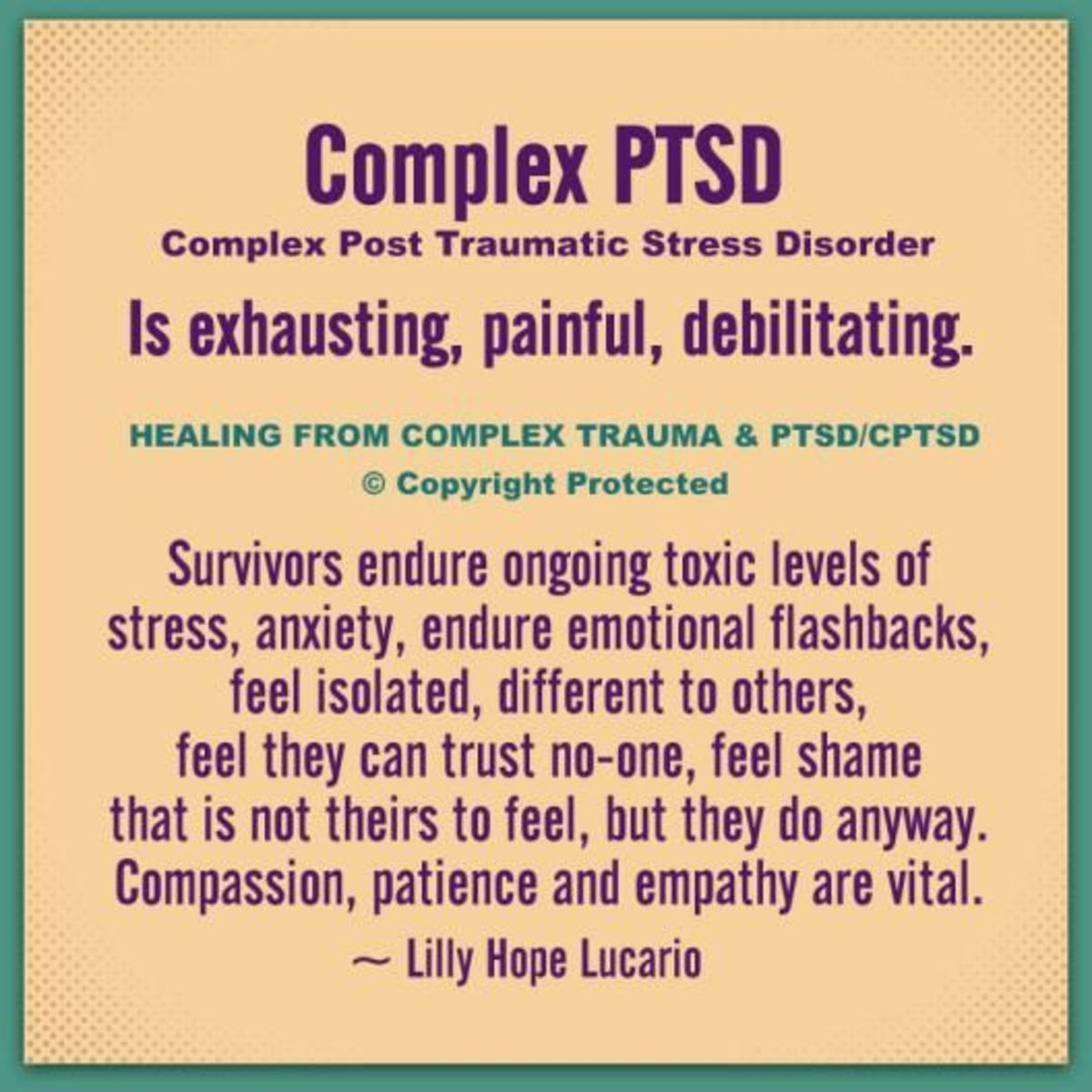Severe Anxiety & Effects on Relationships
When people suffer daily with a chronic anxiety problem, the relationships with those close to them can be very challenging. From that, you may automatically assume, that the people close to the anxious person need our sympathy, but it really does work both ways.
Everyday activities can be severely disrupted by chronic anxiety, and for many sufferers, fitting in with everyone else can become a nightmare.
If you are a person who knows that your anxiety has had an effect on your relationships; or you are someone who finds a person difficult because of their anxiety, then this article might help you to understand the wider picture.
People who have chronic anxiety problems can have a related disorder that may or may not have been diagnosed. Examples of such disorders are:
- Panic disorder
- Generalized anxiety disorder or GAD (without panic attacks)
- Obsessive compulsive disorder or OCD
- Social anxiety disorder or SAD
- Post-traumatic stress disorder or PTSD

Anxiety in a Marriage or Partnership
Anxiety disorders can test the most loving of marriages or partnerships. The factors affecting the relationship will usually stem from one or more of the following:
Socializing
Chronic anxiety can cause sufferers to lose a lot of confidence in the social setting. They may wish to avoid social gatherings such as parties, weddings, or even visiting family or friends. They may have a social anxiety disorder which can cause panic attacks. They may develop panic disorder, and the fear of having a panic attack in front of someone is overwhelming. Social anxiety and a fear of panic attacks create isolation, and can be very debilitating.

Agoraphobia and Panic Attacks
Agoraphobia often goes hand in hand with other anxiety disorders, particularly panic disorder. The main fear is that of not being able to escape a situation/place and again, the fear of humiliation in public if this causes a person to panic. Agoraphobia and panic disorder can affect everyday activities such as:
- Shopping
- Traveling
- Leaving the home
- Holidays
- Working
- Attending appointments
- Going to the theater or cinema
- Concerts
- Eating out in a restaurant
Most of the above may be attempted only when a partner is present, but sometimes there will simply be a refusal to risk panicking, even with the support of a loved one.
Health Anxiety
Many people, who have had an anxiety problem for a long time, develop something called health anxiety. Some may look on it as hypochondria, but with a chronically anxious person, there will be an underlying fear of illness and death. The fear is very powerful, and a severe anxiety state can make the most minor of illnesses seem very serious to the sufferer. You may find your anxious partner showing the following behaviors:
- Frequent trips to the doctor’s surgery
- Frequent trips to the emergency department
- Refusal to accept diagnosis - second opinions sought
- A constant insistence that something is very wrong in the physical sense
- A tendency to develop more allergies (genuine)
Note: Difficulty swallowing – tension in the throat can cause a symptom called globus hystericus, in which the person may find swallowing food and pills difficult. A fear of choking can result
Catastrophic thinking and panic attacks
Other Irrational Fears
A person with severe anxiety can see catastrophe in almost anything. Whilst a lot of their fears will appear irrational to you, they feel very rational to the sufferer. Their anxious state can make them feel hyper-aware or hyper-aroused. They often feel, see and hear things much more magnified than a calm person. Noises and flashing images may bother them greatly.
You may also witness some of the following fears and symptoms:

- A fear of being alone – needing you constantly by their side
- A fear of children leaving home – losing part of their support system
- A fear of you walking out on them
- A fear of medications
- Skipping meals or not wanting to eat with the family
- Self medicating with alcohol/drugs
- Poor sleep pattern or broken sleep
- Exhaustion
- Irritable
- Impatient
- Low to moderate depression - tearful
- Heavy caffeine consumption
Advice for Partners of Those with Severe Anxiety
Life can become very difficult, and in time, all of the above behavior can take its toll on you. Your life can become severely disrupted…if you let it! You may feel that some of the behavior is overwhelming, and that your supportive nature is being abused. This is understandable as you are not the one with the problems. It is difficult for you to see things in the sufferer’s perspective, but your partner is probably feeling:
- Guilty
- Needy without wanting to be
- Ashamed
- Useless
- Inferior
- Confused
- Angry with himself/herself
As much as you love the sufferer, it is in their interest and your own interest, that you take some personal control with the situation. You may have tried rationalizing over and over with your spouse, but been told you simply don’t understand. You probably don’t! It often takes another fellow sufferer to fully comprehend them. Given that you don’t know exactly how they feel, you should try the following:
- Ask them when it is best to leave them alone, or when they want a cuddle/support
- Never use words such as “pull yourself together” or “if you don’t stop this I’ll…..”
- Do tell them that you love them
- Encourage facing the problem on a practical level – seeking therapy or counseling
- Offer to go to any therapy or doctor’s appointments with them so you can better understand
- Buy them books on self help for anxiety, and books for yourself on the subject
- Gently encourage them to do all the things they refuse to do, to be responsible for their anxious state and address it
On a personal level you should:
- Carry on going out with friends/family
- Arrange a short break/holiday for yourself now and again if your spouse refuses to go anywhere
- Learn some form of relaxation to ease your stress (you can teach your partner!)
- Not feel guilty when doing something YOU want or need to do
- Join a local mental health group for carers if possible

Partner Dependency with Anxiety
You absolutely should not fall prey to doing everything for your partner. If you do this, you are actually encouraging more dependency. Taking the responsibility of the anxiety problem of your partner is not your role. Having some sympathy and understanding is. Watch out for that sympathy though! If you show too much sympathy and mollycoddle someone with an anxiety problem, you tend to further the message;
“There’s something very wrong with you”!
You must strike a good balance between understanding that the problem is very real, and not treating your partner as a “patient”.
You do not have to lead a similarly debilitating life as the partner who has severe anxiety. Yes, of course, your relationship will be affected to an extent, because excuses will prevent you doing some normal things together; but you need a life and that’s your right.
Explain kindly that you understand why your partner can’t do this or that, but that you need some time out to do certain things. Perhaps even take up a hobby or sport outside of the home for some precious “you” time.
People can recover from severe anxiety problems (I am recovered after many years of suffering). Even if your partner has suffered for decades there is still hope.

Children and Family of Severe Anxiety Sufferers
Relationships with an anxiety sufferer’s children and family may well be compromised, mostly through lack of understanding. As children become older and are well into their teenage years, parents should sit down and discuss how a severe anxiety problem can affect someone (the parent). Some may not agree with this, but children are not fools. If they don’t understand a parent’s behavior, they make assumptions and form opinions; sometimes opinions that are detrimental to a good relationship with that parent.
Some anxiety sufferers try very hard to be a great parent despite their fragility. Others may lean on children in much the same way as they do their partners. Getting a child to carry out everyday duties that far exceed the norm isn't unusual. Panic attack sufferers especially, tend to want to hide their attacks from their children, but this can sometimes mean disappearing for a while such as going to lie down. Children can become resentful as they become older, or “cash in” on the parent’s obvious incapacities.
“I’ll play out a while longer because mom’s lying on the bed again”!
It is difficult I agree, if the children are very small, but a wise parent will explain themselves to a large degree with teenagers who are capable of understanding.
A teenage child should:
- Be given an explanation
- Discouraged from doing too much for the anxious parent – there is a happy medium!
- Regularly asked how they feel, and encouraged to talk about how they feel
- Be disciplined appropriately if they take advantage of a parent’s fragility
- Be watched for signs of learned anxious behavior. Address the problem if it arises

I remember a long time ago when I suffered with panic disorder, there were times I would attempt shopping trips with my sisters and mother. I stopped a lot of these family activities because I sometimes wrecked the day! I felt so guilty when I had a panic attack whilst eating out, shopping and sharing other normal activities with my family. Either I would have to go home, or we would all go home. They pitied me I believe, and though I tried to explain, I’m afraid they probably saw it as weakness.
From a sufferer’s point of view, it is sometimes difficult having your anxiety problems accepted by the family. Those with severe anxiety tend to avoid family gatherings or visiting anyone, and self alienation can result. Some members of the family may show impatience, frustration, and even nonchalance, resulting in poor relationships. It is a difficult problem, but I would advise families to:
- Practice patience, and be especially supportive at difficult times
- Buy books about severe anxiety problems or disorders to fully understand
- Tell the sufferer you fully understand or ask questions if you don't
- Remember that none of the sufferer’s avoidance is personal, and visit them regularly
- Encourage the sufferer to take up relaxation, meditation, yoga and/or see a therapist
Who doesn't understand your anxiety problem?
Note for Severe Anxiety Sufferers
You must remember that although you know how you feel, it is difficult for others to understand how you feel. It is in your best interests to address your anxiety problem head on, and not be defeated by it all. Force yourself wherever possible to meet the challenges that family life brings, and don’t be tempted to take help for granted. This is your anxiety problem, and you have to take responsibility for it in order to begin to recover.
Do not be afraid to tell your family about your severe anxiety problems. Some people try to disguise the fact that they are having difficulties, to avoid shame. The problem is much more common than you think, and the result is that you will be piling even more pressure and stress on top of the original problem. It's difficult to keep pretending everything is okay. Explain to everyone close to you how you suffer.








